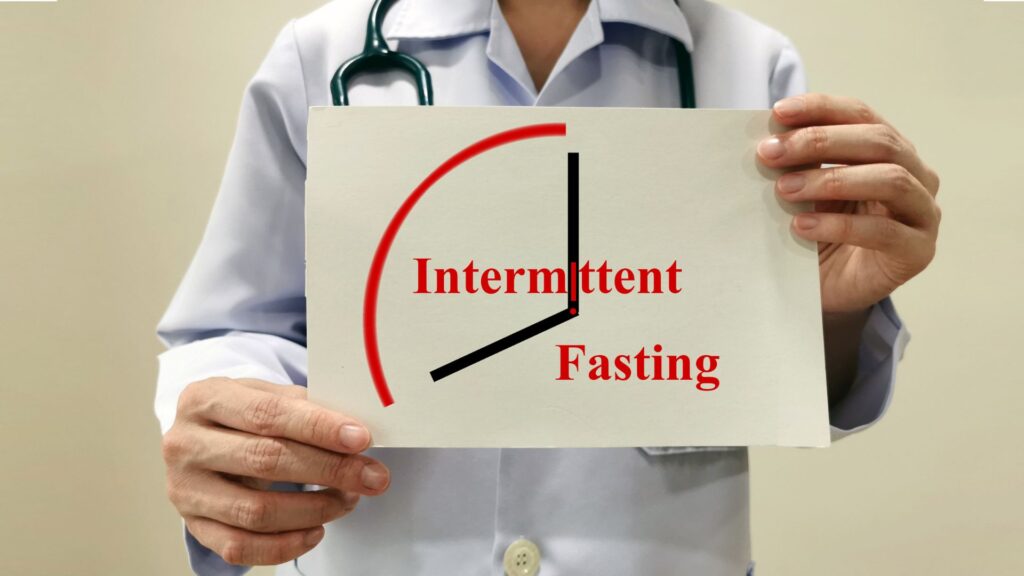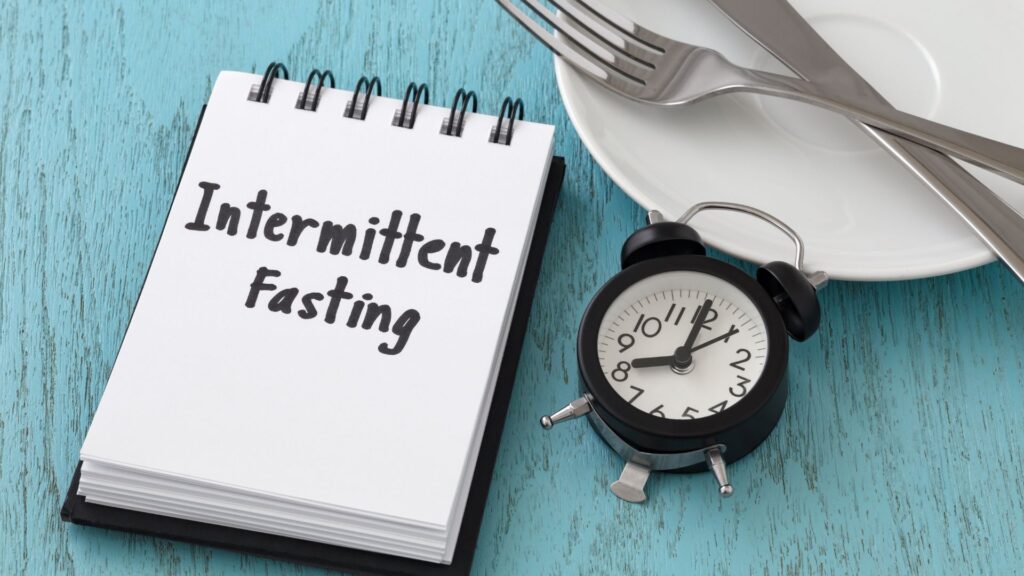Introduction: Intermittent Fasting and Low-Carb Diets for Optimal Health
Are you looking for a way to improve your overall health and well-being? Perhaps you’ve heard of intermittent fasting or low-carb diets but aren’t sure how they work or what benefits they provide.
In this article, we’ll explore the benefits of both, as well as the powerful combination that can be created when these two approaches are combined. Intermittent fasting is a dietary approach that involves periods of calorie restriction followed by periods of normal eating.
The most popular types of intermittent fasting include the 16/8 method, where you fast for 16 hours and eat during an 8-hour window, and the 5:2 diet, which involves restricting calories to 500-600 per day for two non-consecutive days per week.
Intermittent fasting has been shown to have numerous benefits, including weight loss, improved insulin sensitivity, reduced inflammation, and even increased longevity.
Low-carb diets
Low-carb diets focus on reducing carbohydrate intake while increasing protein and fat consumption.
There are several types of low-carb diets, such as keto diet (very low-carb), paleo diet (moderately low-carb), and Atkins Diet(4 phase program with gradually increased carbs).
If you’re looking for a comprehensive resource on the ketogenic diet, be sure to check out our Ultimate Guide to the Ketogenic Diet: Everything You Need to Know. This in-depth article will provide you with all the information you need to understand the ins and outs of this popular low-carb, high-fat diet.
Low-carb diets have been shown to be effective in promoting weight loss and improving blood sugar control in people with diabetes or prediabetes.
Additionally, they may help lower inflammatory markers in the body which can reduce the risk for chronic diseases.
By combining intermittent fasting with a low-carb diet, you may experience even greater benefits than if you were to follow one approach alone.
When limiting carbohydrates through a low-carb diet while intermittently fasting, it can cause your body to enter a metabolic state known as ketosis.
During ketosis, your body burns fat instead of glucose for energy resulting in accelerated weight loss and potential health improvements such as lowered blood sugar and insulin levels.
In the following sections, we will dive deeper into both approaches and explore how the combination of intermittent fasting and low-carb diets can lead to optimal health.
What is Intermittent Fasting?

Intermittent fasting (IF) is a dietary pattern that involves alternating periods of eating and fasting. Unlike conventional diets that focus on what to eat, IF focuses on when to eat.
There are several different methods of IF, each with its own unique pattern of eating and fasting. The most popular form of IF is the 16/8 method, which involves fasting for 16 hours a day and eating within an 8-hour window.
Another common method is the 5:2 diet, which entails eating normally for five days a week and restricting calorie intake to 500-600 calories per day for the other two days.
Other forms of IF include alternate-day fasting, where you fast every other day, and the Eat-Stop-Eat method, where you fast for up to 24 hours once or twice a week.
The Benefits of Intermittent Fasting
One of the primary benefits of intermittent fasting is weight loss. By reducing your intake window or restricting calories on certain days, you naturally consume fewer calories overall, leading to fat loss over time.
Intermittent fasting has also been shown to improve insulin sensitivity by allowing your pancreas to rest during periods of low energy intake.
This can help regulate blood sugar levels and prevent insulin resistance.
Intermittent fasting has anti-inflammatory effects due to its ability to activate autophagy—the process by which damaged cells are recycled in the body—and reduce oxidative stress.
This can lead to a reduction in chronic inflammation throughout your body.
Intermittent fasting is an effective dietary approach that can promote weight loss and improve overall health by reducing inflammation and improving insulin sensitivity.
What are Low-Carb Diets?

For many years, low-fat diets were the preferred approach to losing weight and improving health.
However, in recent years, low-carb diets have gained popularity due to their effectiveness in promoting weight loss and preventing chronic diseases.
Simply put, low-carb diets restrict the intake of carbohydrates, such as those found in bread, pasta, and sugar.
This forces the body to burn fat for fuel instead of relying on glucose from carbs.
There are several types of low-carb diets, including the ketogenic diet (which is very low in carbs), the Atkins diet (which gradually increases carb intake), and the paleo diet (which focuses on whole foods while avoiding grains and processed foods).
Benefits of Low-Carb Diets
One of the primary benefits of a low-carb diet is weight loss. When your body burns fat for fuel instead of glucose from carbs, you can experience significant reductions in body fat without feeling hungry or deprived.
In addition to weight loss, a low-carb diet can also improve blood sugar control by reducing insulin resistance.
This is especially important for individuals with diabetes or prediabetes.
Furthermore, a low-carb diet may help reduce the risk of chronic diseases such as heart disease and certain cancers.
Some studies have also shown that it can improve cognitive function and reduce inflammation throughout the body.
Overall, a well-planned low-carb diet that includes plenty of nutrients from healthy sources like vegetables, nuts/seeds and lean proteins can be an effective way to improve overall health while promoting sustainable weight loss.
How Intermittent Fasting and Low-Carb Diets Work Together

Intermittent fasting and low-carb diets are two popular eating patterns that have been shown to improve health and promote weight loss.
When they are combined, their effects on the body become even more powerful.
One of the ways that intermittent fasting enhances the effects of a low-carb diet is by promoting ketosis, a state in which the body burns fat for fuel instead of glucose.
When you fast, your body has less glucose available for energy, so it starts converting stored fat into ketones to use as an alternative fuel source.
This process is known as ketosis, and it can help you burn fat more efficiently.
Low-carb diets also encourage your body to enter into ketosis by limiting your intake of carbohydrates.
By reducing carbs, you restrict your body’s access to glucose, which forces it to switch to burning fat instead.
When combined with intermittent fasting, low-carb diets can help keep you in a state of ketosis for longer periods of time.
Promoting Weight Loss and Improved Overall Health
When intermittent fasting and low-carb diets are used together, they can lead to greater weight loss and improved overall health.
By promoting ketosis and reducing insulin levels, these eating patterns help your body break down stored fat for fuel instead of relying on glucose from carbohydrates.
Intermittent fasting also triggers autophagy – the natural process where cells clean up waste material – which helps remove damaged cells from the body.
In addition, studies have shown that combining intermittent fasting with a low-carb diet may improve blood sugar control and reduce inflammation in the body.

Getting Started with Intermittent Fasting and Low-Carb Diets
If you’re interested in trying out intermittent fasting and a low-carb diet together, there are several things you should keep in mind.
It’s important to start slowly and gradually increase the length of your fasts over time.
You should also make sure to stay hydrated and consume enough calories during your feeding window to avoid feeling weak or dizzy.
When it comes to low-carb diets, it’s important to choose healthy, nutrient-dense foods that will provide your body with the fuel it needs.
This means focusing on whole foods like vegetables, fruits, lean proteins, and healthy fats while avoiding processed foods and sugary snacks.
By combining intermittent fasting with a low-carb diet, you can enjoy greater weight loss, improved overall health, and other benefits like reduced inflammation and improved blood sugar control.
As with any new dietary pattern, it’s important to speak with a healthcare professional before making any major changes to your eating habits.
Tips for Combining Intermittent Fasting and Low-Carb Diets

Practical advice on how to start incorporating both into your lifestyle
When it comes to combining intermittent fasting and low-carb diets, there are a few practical tips that can help make the transition smoother.
First, start by gradually reducing your carb intake over time.
This will allow your body to adjust to the changes in the diet without causing any major discomfort or cravings.
It’s also important to choose low-carb foods that are high in healthy fats and protein, such as nuts, seeds, avocados, and fatty fish.
In terms of incorporating intermittent fasting into your lifestyle, it’s important to start slowly and work your way up.
Begin with shorter fasts of 12-16 hours per day and gradually increase the length as you become more comfortable with the process.
It’s also important to stay hydrated during fasts by drinking plenty of water or other non-caloric beverages.
Common mistakes to avoid when trying to combine the two
One common mistake many people make when combining intermittent fasting and low-carb diets is not consuming enough calories overall.
It’s important to ensure that you’re still getting enough nutrients and energy from your meals, even if you’re restricting carbs and practicing intermittent fasting.
This can be achieved by focusing on nutrient-dense foods like vegetables, fruits, lean meats, and healthy fats.
Another mistake is not being patient enough with the process.
Combining these two practices can take some time for your body to adapt fully, which means results may not be immediate or drastic right away – this doesn’t mean it isn’t working!
Give it some time before making any changes or adjustments.
It’s essential not only to focus on diet but also on getting enough exercise as well as sleep because all these factors work together to achieve optimal health for our body.
So be sure to maintain a balanced lifestyle and not solely rely on dieting as the only solution.
By following these practical tips and avoiding common mistakes, you can successfully combine intermittent fasting and low-carb diets for optimal health benefits.
Remember that the key is to take it slow, be patient, and listen to your body’s needs.
Potential Risks and Considerations

The Risks of Combining Intermittent Fasting and Low-Carb Diets
While the combination of intermittent fasting and low-carb diets can have a significant impact on weight loss, blood sugar control, and other health markers, it is important to consider the potential risks as well.
For example, individuals who are already underweight or have a history of eating disorders may not be good candidates for this approach.
Some studies have also shown that combining intermittent fasting with a low-carb diet can lead to nutrient deficiencies if not properly planned.
For this reason, it is crucial to ensure that your meals are well-balanced and include plenty of nutrient-dense foods.
Who Should Avoid This Approach?
As mentioned above, individuals with a history of eating disorders or who are underweight should avoid combining intermittent fasting with a low-carb diet.
Additionally, pregnant or breastfeeding women should discuss any dietary changes with their healthcare provider before making them.
It is also important to note that while some people may see rapid weight loss with this approach, it may not be sustainable in the long term for everyone.
Those who struggle with binge eating or who have difficulty sticking to strict diets may find this approach challenging.

Conclusion
Combining intermittent fasting and low-carb diets can be an effective way to improve overall health and achieve weight loss goals.
However, it is important to consider the potential risks associated with this approach before starting.
If you decide to try combining these two approaches, make sure you are doing so in a safe and sustainable way by focusing on balanced meals that provide all the necessary nutrients.
As always, consult with your healthcare provider before making any significant changes to your diet or exercise routine.
For a thorough understanding of the proper human diet and its benefits, don’t miss our extensive guide: The Ultimate Guide to the Proper Human Diet. This all-inclusive resource will equip you with the knowledge you need to optimize your health and well-being through dietary choices tailored to your individual needs.


